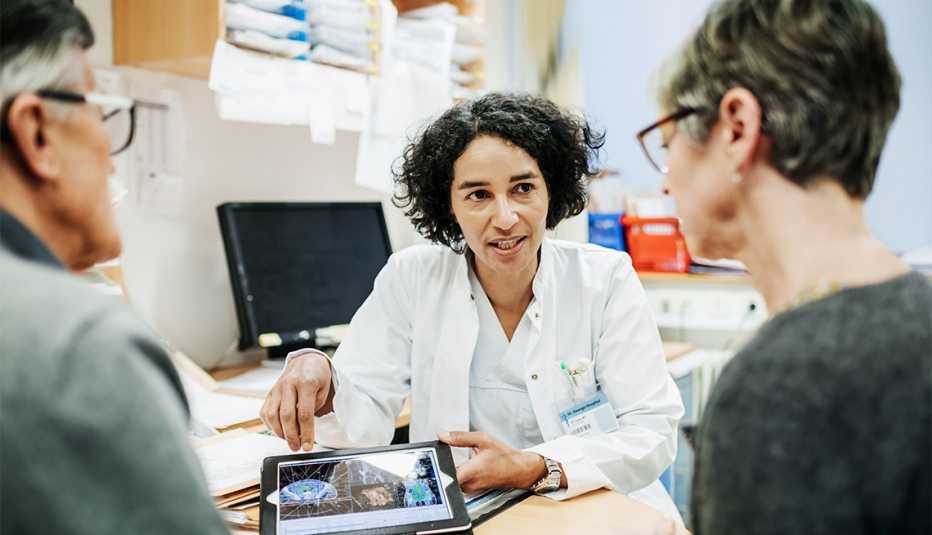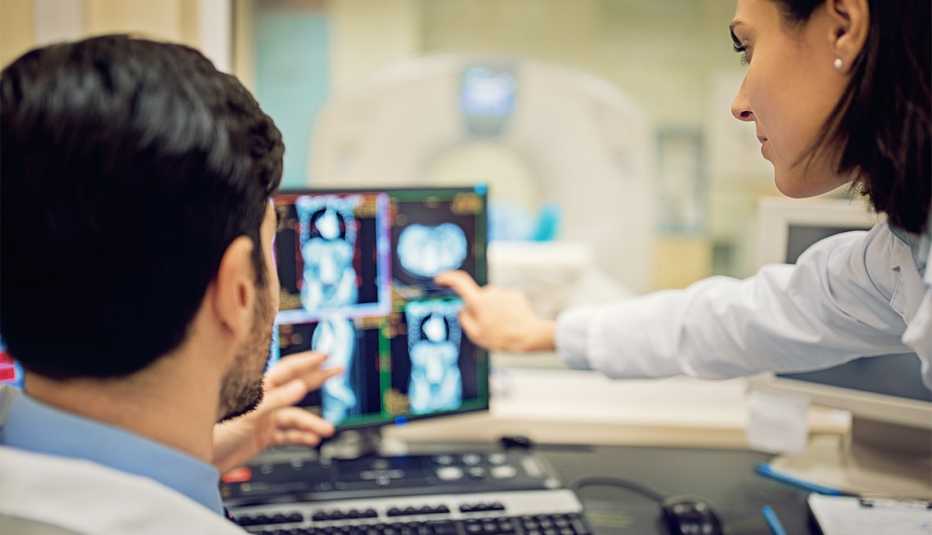AARP Hearing Center


Fifteen years ago, Jane Morello, 78, was diagnosed with stage 3 breast cancer. She had her lymph nodes removed, followed by chemotherapy, radiation and a five-year course of medication.
Last July, Morello was diagnosed with pancreatic cancer. “This is very tough. Breast cancer was a lot easier,” she says.
But Morello considers herself lucky to be in the hands of a geriatric oncologist who, before recommending treatment, ordered an age-related assessment.
The multidisciplinary exam screens for a variety of problems that the “eyeball test” misses, says her doctor, Rawad Elias at Hartford Healthcare Cancer Institute in Connecticut. “For Jane, I wanted to know how fit she really is so I can tell how we can treat her,” he says.
Such a geriatric assessment — administered by a doctor asking questions in person or by a patient providing answers on something like a tablet — screens for problems that can get in the way of cancer treatment. These include issues with social support, mobility, balance, cognition and mood disorders.
The responses are scored and the results help oncologists make better treatment decisions — sometimes, different ones. A study published in the Journal of Geriatric Oncology in November, for instance, found that among patients 70 and older, 27 percent of the treatment recommendations patients received without a geriatric assessment changed after they received one.
Supriya Gupta Mohile, a geriatric oncologist and professor of medicine and surgery at the University of Rochester Medical Center, notes that a geriatric assessment requires doctors to take into account a variety of factors that aren't captured in routine practice. “Oncologists are not sensitive to problems of aging unless they're taught them. They miss cognition and memory problems because they're not trained to do this,” she says.
A geriatric assessment can also keep patients safe, flagging those who may not be able to physically tolerate certain treatments. In May 2018, the screening tool gained greater acceptance by medical experts after a study published in the Journal of Clinical Oncology showed that it helps to predict “adverse outcomes” related to treatment, including death, says Mohile, one of the study's lead authors.




































































More on Health
5 Things That Will Change Cancer Care in the Next Decade
From 'liquid biopsies' to precision medicine to immunology, advances to benefit older patientsYour Cancer Risk After 50
What can I do to increase my chances of staying disease-free?New Report: Cancer Deaths Down Nearly 30 Percent
Declines in smoking, plus advances in detection and treatment behind trend